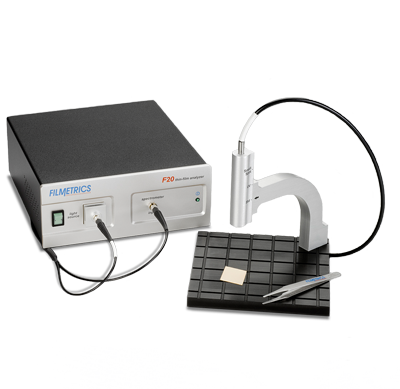How to Measure Conformal Coating Thickness
Posted by Sean Horn
Friday, August 19, 2016 7:30
@ 7:30 AM
Methods for Measuring Conformal Coating Thickness
Appropriate, reliable functioning of conformal coatings is largely dependent on precise coating thickness. Printed circuit boards (PCBs), associated wiring assemblies, and similar electronic devices depend on accurate film thicknesses, detailed to their particular performance requirements. When determining coating thickness, it is necessary to remember
- Proper coverage is impossible if the applied conformal film is too thin because the PCB is vulnerable to potential environmental risks,
- Overly thick film application can generate disproportionate stress on components and solder joints, potentially rendering electronic-specific components inoperable.
- In either case, consequent component non-functionality defeats the purpose of the coating.
Recommended coatings thicknesses for the five predominant types of conformal coating are provided in Table 1.
Table 1: Recommended Coating Thicknesses by Type
Type Full Name Thickness When Applied
Type AR Acrylic Resin 0.00118 to 0.00512 in.
Type ER Epoxy Resin 0.00118 to 0.00512 in.
Type UR Polyurethane Resin 0.00118 to 0.00512 in.
Type SR Silicone Resin 0.00197 to 0.00827 in.
Type XY Parylene Resin 0.000394 to 0.00192 in.
Quality Specifications for Coating Thickness
Each coating application has a quality specification for film thickness: The measurement of a PCB’s conformal film is a critical factor in conformal coating process control:
- Coating thickness measurement is necessary to assess whether the coating’s protection level is adequate.
- Actual recorded film thickness of the PCB is compared to job-specific thickness requirements, to ensure internal and international standards are met.
These specifications provide guidelines for measuring the thickness of conformal coatings, which can be taken while the film is either dry or wet. In general, a coating thickness is specified according to the material used for the film, and the function of the particular assembly, within the levels recommended in Table 1.
Conformal Coating Thickness Measurement Methods
 Dry Measurement
Dry Measurement
The PCB needs to be sufficiently dry to measure without damaging the conformal film. Several methods are commonly used for assessing the depth of coating thickness of conformal films. The easiest involves using calipers to measure the PCB, recording the existing dimensions prior to application of the conformal coating. Re-measurement of the same area commences subsequent to coating and drying the assembly. Averaging the two measurements (before and after coating) determines coating thickness; the film’s uniformity of application is assessed by standard deviation analysis. Conformal coating on both sides of a PCB requires division of the total by two, to achieve an accurate measurement of the film’s thickness.
Test coupons can generate reliable coating thickness measurements. Composed of non-porous materials like glass, metal, or, optimally, the same material as the PCB itself, test coupons are sprayed onto the PCBs both prior to and following a production run; they economically calibrate the conformal coating thickness for each condition. A test probe is set flat on the surface of the conformal coating, generating a measurement accurate to ±1 um at films as thin as 25-50 um. Micrometers and similarly reliable gauges compare the PCB’s cured coating to quality specifications; non-contact techniques use eddy currents.
Wet Measurement
Wet film measurement allows operators to ensure quality control of coating thickness while the film itself is still wet. A wet-film gauge is used to measure conformal coating that has not yet dried. Its general form is that of a comb with teeth unevenly separated from each other. The teeth are marked with a measuring range of mils (1/1000’s of an inch); fastened to the wet conformal coating, the teeth record the thickness of the conformal coating. If, for instance, a wet-film gauge with 1 – 10mils used to measure a freshly coated, wet PCB registers no coating on teeth 8 – 10, the conformal film has a thickness between 7 – 8 mils. This value is multiplied by the percent of solid content in the coating; thus, a coating with a solid content of 20% would register a coating thickness between 1.4 – 1.6 mils. This equals 35.56 – 40.64 microns @ 1 mil = 25.4 microns. Once mastered, wet measurements are relatively simple to enact.
Conclusion
The measurement of the conformal coating thickness on a PCB to ensure internal and international standards are met is a critical factor in conformal coating process control. Coatings on assemblies that are too thin or uncoated — either partially or totally — provide insufficient protection, limited insulation and lack the remainder of the benefits attributed to conformal coatings, regardless of material type. Typically, the outcome of deficient coating thickness is damage sufficient to cause PCB malfunction. Coating applied too thickly also interferes with the assembly’s work capacities, frequently causing exceptional stress on components and solder joints, also leading to malfunction. Hence, the need to select thickness measurement methods appropriate to the covering material and the component’s expected end-use, to assure the product’s ongoing functional reliability. The dry and wet methods described above generate the widest range of measurement solutions for conformal coating.
At Diamond-MT, we are industry-leading conformal coating experts with over 30 years’ of experience. Our team provides high-quality conformal coating services for all industries. Contact us today by submitting a quote form or calling us at 1-814-535-3505.
Comments
Homepage 4/17/2020. 10:17:10 AM
... [Trackback] [...] Informations on that Topic: blog.paryleneconformalcoating.com/whats-the-difference-between-potting-and-conformal-coating/ [...]

londondrugscanada.bigcartel.comlondon-drugs 4/17/2020. 10:17:10 AM
cialis uk https://londondrugscanada.bigcartel.com/london-drugs This is nicely expressed. !